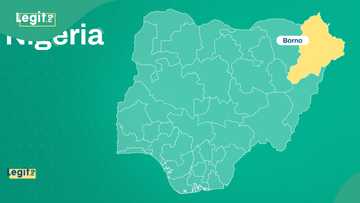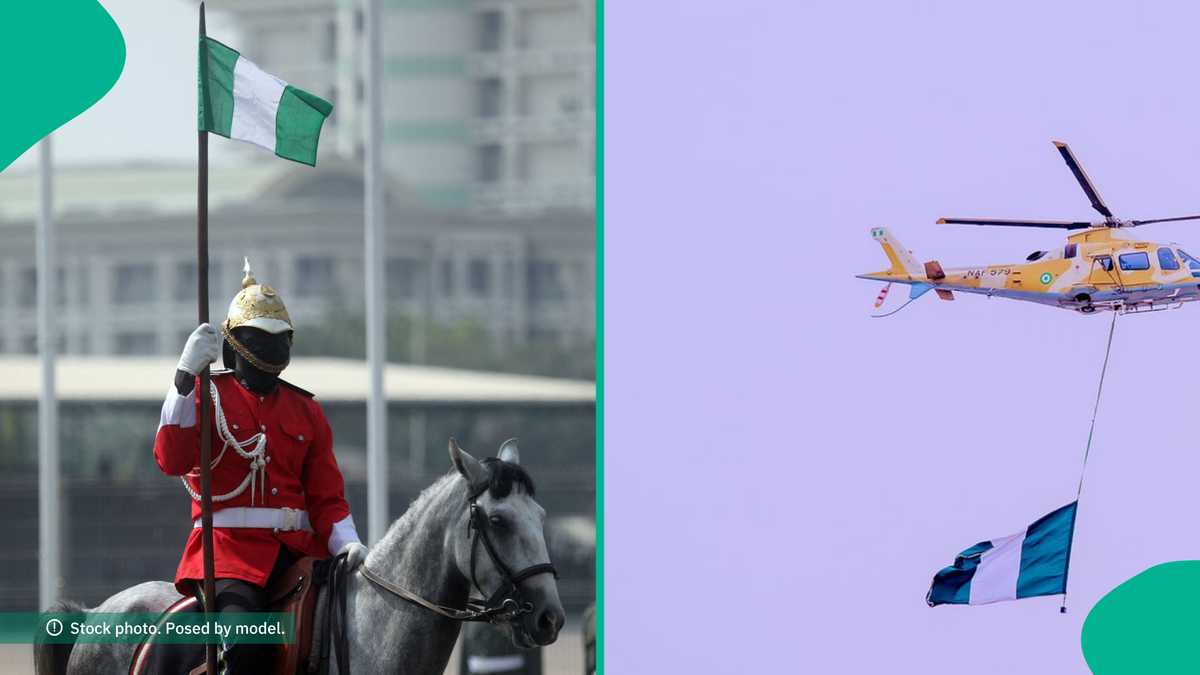Armed Forces Remembrance Day in Nigeria, observed on January 15, honors the nation’s fallen heroes and celebrates the bravery of its living veteransThis annual event features nationwide ceremonies, including a wreath-laying ceremony by the President at the National Cenotaph in Abuja, symbolizing respect and remembrance for those who sacrificed their livesThe day also includes the release of white pigeons, symbolizing peace and unity, and the display of the Armed Forces emblem to support the families of fallen soldiers
Every year, Nigeria observes Armed Forces Remembrance Day on January 15, a solemn occasion to honor the nation’s fallen heroes and celebrate the bravery of its living veterans.
The day serves as a poignant reminder of the sacrifices made by members of the Nigerian Armed Forces to protect and preserve the nation’s unity and peace.
Release of White Pigeons and 6 Other Facts About Armed Forces Remembrance Day in Nigeria
Source: Twitter
From historic commemorations to symbolic ceremonies, Armed Forces Remembrance Day is steeped in traditions that highlight the valor and dedication of Nigeria’s military personnel.

Read also
6 crucial points as Eric Chelle makes statement to Nigerians on social media
Here are seven key facts about this significant day:
1. Historical Significance
Initially observed on November 11, aligning with Remembrance Day (Poppy Day) for World War II veterans in the British Commonwealth of Nations, Nigeria moved the celebration to January 15.
This date marks the surrender of Biafran troops to Federal troops in 1970, symbolizing the end of the Nigerian Civil War and the preservation of national unity.
The shift in date depicts the importance of remembering the conclusion of a conflict that threatened to tear the nation apart and honors the soldiers who fought to maintain Nigeria’s integrity.
2. Nationwide Ceremonies
Armed Forces Remembrance Day is commemorated with events at federal, state, and local levels.
A 25-man national planning committee, organized by the Ministry of Defence, ensures meticulous preparation for these ceremonies.
These events often include military parades, featuring guards of honor from the Nigerian Army, Nigerian Navy, and Nigerian Air Force.

Read also
40 farmers killed, dozens missing as Boko Haram rains terror in Borno
The elaborate nature of these ceremonies reflects the nation’s deep respect and appreciation for its military personnel.
3. Wreath Laying at the National Cenotaph
The highlight of Armed Forces Remembrance Day is the wreath-laying ceremony by the President at the National Cenotaph at Eagle Square, Abuja.
This solemn act is replicated across the 36 states where authorities lay wreaths at local cenotaphs.
The wreath-laying ceremony serves as a moment of reflection and tribute, honoring the memory of those who sacrificed their lives in service to the nation. It is a powerful gesture of respect and remembrance that resonates deeply with the Nigerian people.
4. Tribute to Fallen Heroes
At cenotaphs, security chiefs, political leaders, members of the Nigerian legion, and other stakeholders gather to pay tribute to the brave soldiers who sacrificed their lives in service to the nation.
These gatherings serve as a poignant reminder of the costs of war and the valor of those who fought to protect their country. The presence of diverse representatives from various sectors of society highlights the collective gratitude and respect for the military’s sacrifices.

Read also
Lawmakers gives hope, speaks on reopening borders as smuggling continues
5. Symbolism of the Cenotaph
A cenotaph serves as a memorial for those who died in wars, even if their remains are buried elsewhere.
It symbolizes the collective memory and respect for those who laid down their lives on the battlefield. In Nigeria, cenotaphs can be found in every state, including the Federal Capital Territory (FCT), Abuja.
These structures stand as enduring symbols of the nation’s gratitude and recognition of the sacrifices made by its military personnel.
6. Release of White Pigeons
White pigeons are released during the Armed Forces Remembrance Day events, symbolizing peace and unity within the nation.
This act, along with traditional gun salutes, pays homage to the unknown soldiers and the ideals they fought for.
The sight of white pigeons taking flight serves as a visual representation of the nation’s hopes for lasting peace and harmony. It is a moving tribute that encapsulates the essence of the day.

Read also
Congolese government executes 102 men, 70 more set to be executed, gives reason
7. Armed Forces Emblem
The Armed Forces emblem is introduced by the Federal and State governments before the festivities.
Citizens are encouraged to make contributions for the welfare of fallen soldiers’ families and display the emblem proudly.
The emblem is worn until the wreath-laying ceremony, after which it is no longer valid. This practice not only raises funds for veterans’ families but also fosters a sense of unity and shared responsibility among Nigerian citizens.
FG Closes Roads to Honour Nation’s Fallen Heroes
Henzodaily.ng reported that the federal government has ordered the closure of parts of the roads accessing the arcade of the federal secretariat complexes and the Ministry of Foreign Affairs in Abuja, in commemoration of the 2022 Armed Forces Remembrance Day celebration.
Head of Civil Service of the Federation, Dr. Folasade Yemi-Esan in a circular numbered HCSF/PS/SWO/007/iv/552, informed the Ministries, Departments and Agencies, MDAs, and the general public of the closure yesterday, Thursday, January 13, by 2.00pm prompt.
PAY ATTENTION: Сheck out news that is picked exactly for YOU ➡️ find the “Recommended for you” block on the home page and enjoy!
Source: Henzodaily.ng
